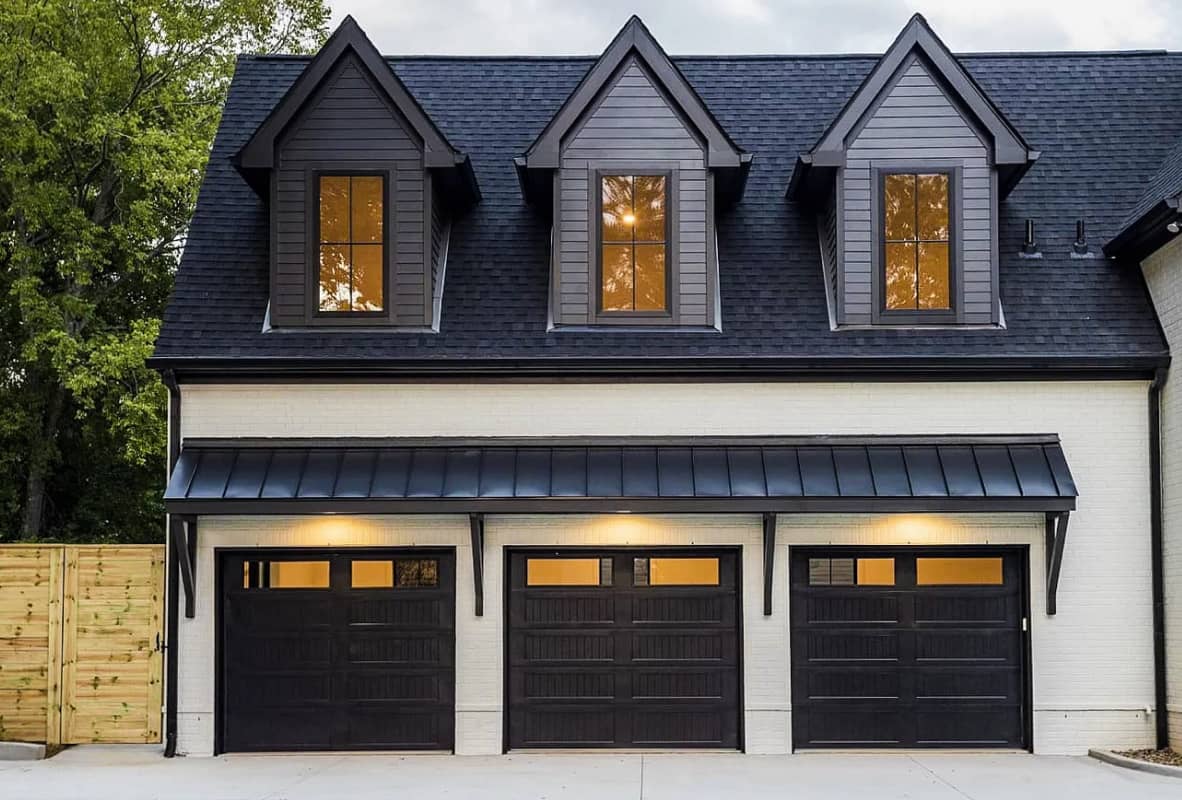When it comes to garage door installation, many homeowners are concerned about how long the process will take. Whether you’re building a new home or replacing an old garage door, understanding the time commitment involved can help you plan accordingly. Several factors influence the duration of the installation, but on average, a professional garage door installation typically takes about 4 to 6 hours. However, certain conditions may either shorten or extend this time frame.
Factors Affecting Garage Door Installation Time
- Type of Garage Door The type of garage door you’re installing plays a significant role in the time it takes for the installation. A standard single-car garage door is simpler and quicker to install, often taking between 3 to 4 hours. On the other hand, a double-car garage door or a more complex model, such as a custom or carriage-style door, can take longer—typically 5 to 6 hours or more. The complexity of the design and additional features like windows or decorative hardware also add to the installation time.
- Existing Setup and Removal If you’re replacing an existing garage door, you have to factor in the time it takes to remove the old door and its hardware. This process typically takes an extra 1 to 2 hours, depending on the condition of the existing door and the type of opener mechanism. For a new installation where no previous door or tracks are in place, installation may proceed faster since there’s no need for removal or prep work.
- Condition of the Garage Structure The condition of your garage’s structural integrity can affect the installation time. If the walls, frame, or ceiling need any modifications to accommodate the new garage door, this will add to the overall duration. For instance, if the door frame needs reinforcement or the tracks require adjustments, the installer might need extra time. If the garage structure is sound and there are no unexpected obstacles, the process can proceed smoothly and on schedule.
- Opener Installation A significant factor that affects installation time is whether you’re also installing a garage door opener. Installing an automatic opener usually adds an additional 1 to 2 hours to the process, especially if you’re opting for a more complex, high-tech opener with smart features or belt-drive systems. If you already have an opener in place and just need the door, the time may be shorter.
- Professional vs. DIY Installation A professional installation typically takes less time than a DIY approach, thanks to the installer’s expertise, tools, and familiarity with various door systems. A seasoned garage door technician can often anticipate potential issues and troubleshoot them quickly, allowing them to complete the job efficiently. In contrast, a DIY installation may take up to 8 to 12 hours or more, depending on the homeowner’s skill level and the tools available.
What Happens During the Installation Process?
Understanding the basic steps involved in a garage door installation can give you a clearer idea of where the time goes. Below is a general outline of the process:
- Preparation and Setup
The installer will first prepare the site, ensuring that the garage opening is ready. If it’s a replacement job, they will remove the old garage door and hardware. Once the old system is cleared out, the installer will inspect the area for any necessary adjustments to the framework. - Track and Hardware Installation
Next, the tracks and hardware for the new door are installed. The tracks need to be aligned and leveled perfectly to ensure smooth operation. The installer will also install the necessary brackets, springs, and other supporting hardware during this phase. - Door Assembly and Mounting
The door panels are then assembled and mounted onto the tracks. If it’s a sectional door, the panels will be installed one by one. The installer ensures that everything is securely in place and properly aligned. This is a crucial part of the process, as any misalignment can cause the door to malfunction. - Spring Installation
The springs, which are responsible for balancing the door’s weight, are carefully installed and adjusted. Torsion springs take a bit longer to install than extension springs, but both types are critical to the door’s operation. The installer will test the springs to ensure they are functioning correctly and safely. - Final Adjustments and Opener Setup
If an automatic opener is part of the installation, it will be installed at this stage. The opener is mounted to the ceiling, and the motor is connected to the door. The installer will also sync any remotes, keypads, or smart controls that come with the opener. Once the opener is set, the installer will perform several tests to ensure the door opens and closes smoothly.
Wrapping Up the Installation
After the physical installation is complete, the installer will conduct a final check to ensure everything is working properly. They will test the balance, spring tension, and safety features like the auto-reverse system. If everything passes inspection, the installation is complete.
Conclusion
On average, garage door installation takes between 4 to 6 hours, depending on the factors discussed above. While it may seem like a lengthy process, it ensures that your garage door is properly installed, safe to use, and operates smoothly for years to come. Hiring a professional installer can save you time and ensure the job is done right the first time.



